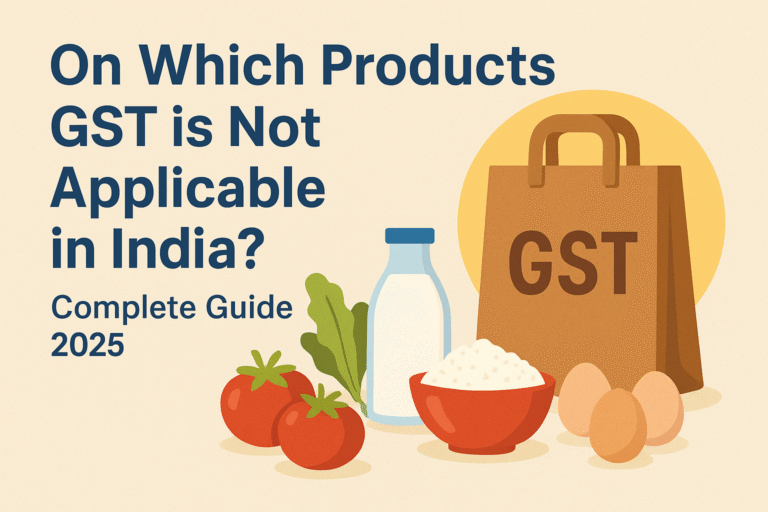1. The Fine: What Happened?
In early August 2025, the Insurance Regulatory and Development Authority of India (IRDAI) slapped a ₹5 crore fine on Policybazaar Insurance Brokers Pvt. Ltd., which had previously operated as a web aggregator (IWA).
This penalty stems from a remote regulatory inspection conducted in June 2020, when Policybazaar was still under IWA rules—not the composite broking license it holds today.
IRDAI’s investigation unearthed eleven violations—some resulted in monetary penalties (five major breaches), while others drew advisory warnings and strict instructions.
2. Breaking Down the Main Offenses
A. Misleading Product Promotions
Perhaps the most glaring issue: Policybazaar was showcasing certain insurance policies as “Top” or “Best” without explaining why, and, crucially, without objective or third-party supporting data.
-
For instance, during the audit window (1–5 June 2020), the platform highlighted top 5 ULIP plans—from Bajaj Allianz, Edelweiss, HDFC, SBI, ICICI—excluding others, even though Policybazaar had tied up with many more insurers.
-
The practice violated web-aggregator rules banning biased ranking unless validated by transparent criteria. Policybazaar’s presentation made customers believe these were endorsed or objectively verified plans—impacting their decision-making.
Result: ₹1 crore fine for misleading promotions.
B. Delayed Premium Remittance
Another critical lapse: delay in passing customer premiums to insurer partners.
-
Regulations under Section 64VB of the Insurance Act require transmission of premiums within 24 hours.
-
Policybazaar was found using its own payment gateway with a nodal account, stretching remittance to insurers for 3+ working days in many cases—and some delays exceeded 30 days.
Such delays can risk policy issuance delays and potential coverage gaps, especially problematic if a claim arises before the insurer gets the payment.
Penalty: another ₹1 crore under premium remittance violation.
C. Governance & Conflict-of-Interest Lapses
A governance concern centered on key managerial personnel (KMPs)—like the principal officer—holding directorships in other companies without prior IRDAI approval.
This potentially leads to divided loyalties or business influence from outside the main entity—issues that aren’t permissible under web aggregator norms.
Penalty: ₹1 crore for undisclosed directorships.
D. Other Compliance Failures
IRDAI flagged several additional issues, each carrying advisory warnings or minor financial penalties:
-
Improper outsourcing and commission structures: functionaries engaged third parties with high payouts and inconsistent compliance monitoring.
-
Telemarketing and policy mapping gaps: Almost 100,000 sales via telemarketing were mismapped, lacking linked Authorized Verifier records—plus incomplete call recordings.
-
Lack of proper due diligence: Around staff and agents holding insurance agency licenses or commissions outside norms.
Altogether, these led to a combination of formal directions, advisories, and cautions from IRDAI.
3. Timeline: From Inspection to Fine
-
June 2020: IRDAI conducts the remote inspection while Policybazaar is an IWA.
-
October 2024: Policybazaar receives a formal “show-cause notice.”
-
After hearings and submissions, IRDAI finalizes the penalty in August 2025, levying ₹5 crore.
Policybazaar confirms the order won’t affect ongoing operations.
4. Why It Matters: Beyond the Amount
This is not just about ₹5 crore—it’s about trust, transparency, and consumer safety in the evolving digital insurance space.
-
As an insurance aggregator, Policybazaar promised neutrality. But biased listings and opaque promotions undermine that key role.
-
Delayed premium transfers can expose customers to uninsured risk—especially if claims arise in that gap period.
-
Governance breaches signal deeper issues in accountability—a KMP’s undeclared role in other firms erodes confirmation that decisions are made in the aggregator’s interest.
IRDAI’s enforcement sends a clear message: even digital platforms must follow strict regulatory and ethical frameworks.
5. How Does It Affect Policybazaar (and You)?
For Policybazaar / PB Fintech:
-
Its shares dipped 1.8–2.3% immediately after the news as investors weighed regulatory risks.
-
Though now a licensed composite broker (since February 2024), IRDAI’s action focuses on the aggregator phase, where tighter rules applied.
-
Next step: Policybazaar must pay within 45 days or can appeal to the Securities Appellate Tribunal.
For Consumers:
-
If you purchased via Policybazaar between 2020–2024, check your policy issuance timeline and confirmation of premium remittance to insurer.
-
Biased labels might have nudged you wrong—if a product was labeled “Best” without clarity, I would question why.
-
Going forward: Choose platforms that clearly explain ranking criteria, show fair comparison, and reliably traverse payment to insurer.
6. Bigger Picture: Digital Insurance and Reform
IRDAI’s Evolving Regulation
IRDAI has tightened rules around Insurance Web Aggregators (IWAs) via revised norms since 2017—mandating transparency, no subjective rankings, and payment protocols.
Penalties like this show IRDAI is enforcing those rules even retroactively, regardless of how well-known or high-profile the company is.
Leadership Vacuum & Reform Delay
India’s insurance sector reforms have been held back lately because IRDAI’s chairman post has been vacant since March 2025.
Despite that, enforcement actions like this suggest IRDAI’s resolve to maintain guardrails.
7. What Should Policybazaar Do Now?
-
Enhance transparency: If a product is tagged “top” or “best,” show clear methodology—whether it’s claim ratios, price, features, or independent review.
-
Ensure strict remittance protocols: Premiums must always be forwarded to insurer within the legally required 24 hours.
-
Enforce governance checks: Ensure KMPs don’t hold conflicting roles, avoid any conflict-of-interest without proper disclosure.
-
Strengthen outsourcing oversight: Maintain contracts, call recordings, mapping with verifiers, and audit trails.
-
Public-facing accountability: Share post-action reports, updates on compliance systems, and grievance mechanisms.
8. Key Takeaways
| Lesson | What It Means |
|---|---|
| Transparency matters | Labeling products “Best” without data breaks trust. |
| Timely payments are vital | Customers paying doesn’t guarantee coverage unless premiums reach insurer quickly. |
| Governance isn’t optional | Undisclosed board roles raise red flags. |
| Digital platforms must obey regulations | Fintech does not mean loophole. |
| Regulators act—even post-transition | IRDAI can penalize actions from previous Compliance regimes. |
9. Final Thoughts
Policybazaar, once the darling of online insurance comparison, is now a cautionary tale about digital disruption’s limits. In a world where flashy portals and bold claims captivate users, compliance must keep pace. IRDAI’s ₹5 crore penalty is both a corrective—and a reminder to the broader digital insurance ecosystem: Consumers deserve fair choice, accurate info, and uninterrupted coverage.
If you bought policies through aggregators in that earlier period (2020–24), consider revisiting your policy details. And going forward, look for platforms that show how they arrive at recommendations, deliver premiums swiftly to insurers, and govern leadership transparently.






